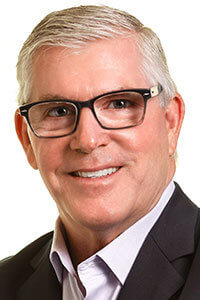
VisitDallas officials are defending the CVB after an unfavorable city audit of the bureau. (VisitDallas)
The New Year was barely underway when VisitDallas found itself fac- ing an age-old public relations crisis, familiar to many destination marketing organizations. Some of the city’s leading media outlets covered the results of a city audit that questioned the CVB’s economic impact, outlined concerns over its expenses, and called for greater oversight over its operations.
“The narrative in the audit is about vaguery,” Dallas Mayor Mike Rawlings told The Dallas Morning News. “That ultimately is a concerning thing, because business this important should be run with precision.”

Phillip Jones, CEO of VisitDallas, is defending his CVB after a negative city audit. (VisitDallas)
After the story broke, Convene reached out to Phillip Jones, CEO of VisitDallas. Since Jones began heading up VisitDallas in the fall of 2003, the organization has produced clear results, he said. When he first came on board, the city booked approximately 500,000 room nights each year. In 2018, Jones said that the figure had grown to 2.5 million room nights. Over the past five years, VisitDallas has seen a 42-percent increase in hotel occupancy.
Those room nights play a critical role in funding the organization. Jones said that the organization receives one-third of the city portion of the hotel occupancy tax, which equates to between $18 million and $19 million each year. Another $16 million to $17 million of the budget comes from the city’s Tourism Public Improvement District — a fee on Dallas hotels with more than 100 rooms — followed by an additional $2 million to $3 million in private money from partnerships, sponsorships, and memberships.
“Our funding relies on visitor tax dollars,” Jones said, “not taxes paid by residents. In fact, they save the aver- age resident around $1,100 per year in property taxes.”
Questioning Compensation
Business events professionals are fluent in the language of room nights and hotel occupancy rates, but those outside the industry often narrow in on one figure: the CEO’s annual salary. In an opinion piece for The Dallas Morning News, Sam Merten, a member of the Opportunity Dallas board of directors and the City of Dallas Citizens Homelessness Commission, took issue with Jones’ salary, calling it “a staggering total compensation of $670, 317” in 2016.
“For comparison,” Merten wrote, “our city manager, who essentially serves as chief executive of Dallas and manages its more than $3.6 billion budget and 13,000 employees, earns $395,000 annually.”

Don Welsh, president and CEO of Destinations International
This kind of salary comparison comes as no surprise to Don Welsh, president and CEO of Destinations International, who said that the scrutiny of executive compensation is “an issue that has been near and dear” to him since his time leading CVBs in Seattle, Indianapolis, and Chicago. “Any time you are funded in part by public money, there is a belief that you are somehow a public official,” Welsh said. “That belief leads to a comparison of salaries with mayors or governors instead of other nonprofit professionals.”
Welsh said that measuring a CVB exec’s salary against that of an elected official is an apples-to-oranges com- parison. “If you work for a private non- profit, you don’t have the same pension benefits as a government employee,” he said. “Many of those employees have pensions that pay them the same annual salary for the rest of their lives. We have to move away from comparing a CVB CEO’s salary to an elected government official. It is an unfair comparison.”
Learning and Teaching
As this issue of Convene went to press, Jones was preparing for a Feb. 19 special meeting with the City Council’s Government Performance & Financial Management Committee, where he planned to respond to all of the concerns raised in the audit. He said that he also recognized value in some of the city’s recommendations. “There are some good suggestions in the audit. We have hired a contract administrator to continuously monitor our contract with the city,” he said, “and to ensure that our travel policy is updated each year.
“We have tried to be as open as possible, and we went through the audit point by point to identify what we can do better to tighten up issues for the city and effectively articulate what we do. Part of this relies on working with City Council members and other city leaders to learn the nuances of our industry. You can’t hold a DMO to typical hotel metrics [like RevPAR and ADR]. The audit was trying to do that. The reality is that it’s not accurate, and we need to do a better job of helping the city understand the metrics that properly frame the value of a visitor.”
And, in fact, VisitDallas already had plans in the works to unveil a campaign called just that — “The Value of a Visitor” — timed with an upcoming local election. “We wanted to make sure all of our mayoral candidates recognize the impact of our work,” Jones said.
“We need to reinforce the big role that we play in the community, how many jobs that tourism supports, and the positive impacts of visitor spending on the local economy. We are all very proud of the tremendous increase in tourism, sporting events, citywide business, and individual meetings and conferences in Dallas. If you compare us to any other major CVB in the country, our results speak for themselves.”
An Ongoing Campaign
The Meetings Mean Business coalition has made inroads on Capitol Hill, getting the word out that this industry has an economic impact of $845 billion. However, that kind of scale may not resonate in individual cities, and the situation in Dallas is a reminder that lawmakers and residents alike need to hear an economic impact story specific to their destination, one that the CVB reinforces on a regular basis. Welsh recommended an always-on-offense approach and said that all CVBs must convey their performance to local government officials with annual reports and regular communications that show how public buildings are performing and how the private sector is investing in the community. “The more you can engage legislative leaders proactively to help them understand the strategy and how that strategy is delivering eco- nomic impact for the city,” Welsh said, “the better off you’ll be.”
He noted that while advocacy is “a critical component of a successful destination marketing organization,” it’s a broad term. “We often look at it
as being reactive in a tough situation,” Welsh said. “I think every CVB CEO should have a mandatory checklist of the potential issues that could pop up and [therefore] cast their work in a negative light. In this day and age, with the power of social media, we have to do everything in our power to be responsible stewards of our brands and show how funds are being spent. Opinion waits for no one. The truth is based on your perception in the minute that you read a headline. Every destination has to tell its story on a regular basis to make sure that leaders and residents understand the real narrative.”
More on VisitDallas
Since this story was written, VisitDallas has received messages of support, including this opinion piece in The Dallas Morning News. Months later, Phillip Jones resigned from VisitDallas.
A Story for the Future of VisitDallas
In addition to highlighting the bureau’s recent results, VisitDallas will aim to educate lawmakers on how the city has positioned itself to welcome even more visitors. According to data from Lodging Econometrics, Dallas had the second-largest hotel construction pipeline in the United States in the second quarter of 2018, with 156 projects that totaled more than 18,000 rooms.
Those figures send out a strong signal. “When a hotel company decides that it will invest in a community, it is a huge decision,” Destination International’s Don Welsh said. Welsh, whose career also includes sales and marketing roles in the hotel industry, added: “In some cases, those real estate developers are looking at how competent the leaders in that tourism community are in order to justify the investment.” — DM
